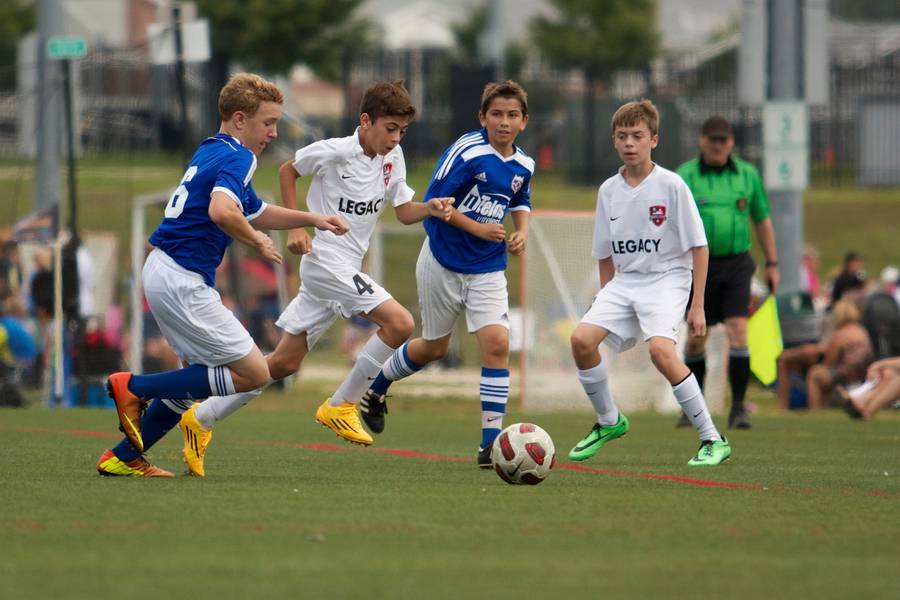
It’s hard not to be drawn to Marcus Rashford's story, which is a powerful testament to the transformative power of determination, talent, and the right support.
Growing up in Wythenshawe, Manchester, Rashford faced significant challenges, including economic hardship that saw him rely on free school meals for nutrition. Yet he rose above these challenges to become one of England's top international footballers and an influential advocate for children's welfare and nutrition.
Rashford grew up in a single parent household with his mother Melanie, who worked multiple jobs to support her five children. Despite her efforts the family struggled financially, and free school meals were a crucial part of Rashford's daily nutrition.
Since becoming a star for Manchester United, he has openly discussed the difficulties he faced as a child. In an interview with The Times Newspaper he said, “My mum worked full time earning the minimum wage, to make sure we always had a good evening meal on the table. But it’s not enough. The system was not built for families like mine to succeed, regardless of how hard my mum worked.”
Rashford went on to join the Manchester United Academy, where he was provided with structured training and nutritional support. Football academies like Manchester United's, recognise the importance of proper nutrition in developing young athletes. They ensure that players receive balanced meals tailored to their rigorous training schedules.
In a later interview with The Guardian, Rashford highlighted the difference this made: "When I was at United, they made sure we had everything we needed. We were eating the right things, training properly. It was a massive change from what I was used to at home."
Rashford's personal experiences with food insecurity have driven him to become a vocal advocate for child nutrition. His campaign to extend free school meals during the COVID-19 pandemic brought national attention to the issue and led to government action. His efforts were recognised with an MBE in 2020.
Reflecting on the importance of his campaign, Rashford stated: “I know what it feels like to be hungry. I know what it feels like to be anxious about where your next meal is coming from. This is why I started my campaign, this is why I want to help families in similar situations.”
Rashford’s journey underscores the critical role that nutrition plays in children’s lives and the development of young athletes in particular. Proper nutrition not only fuels their physical activities but also supports mental and emotional wellbeing, crucial for coping with the pressures of professional sport.
Proper nutrition directly impacts a young player’s physical and mental development, energy levels, and performance. Growing bodies require a balanced intake of macronutrients (carbohydrates, proteins, and fats) along with essential vitamins and minerals to support growth spurts, muscle development, and bone health.

Carbohydrates are the primary source of energy for young athletes. Foods such as whole grains, fruits, and vegetables provide the necessary fuel for training and matches. Proteins are essential for muscle repair and growth, and can be found in lean meats, fish, eggs, dairy products, and plant based sources like beans and lentils. Healthy fats, found in nuts, seeds, avocados, and oily fish, are crucial for brain development and overall health.
Vitamins and minerals such as calcium, iron, and vitamin D play specific roles in maintaining bone density, carrying oxygen to muscles, and supporting the immune system. A deficiency in any of these nutrients can lead to decreased performance and an increased risk of injury.
Some of the best practical dietary advice for Junior Footballers is around pre-match nutrition. The meal before a match is crucial for ensuring that young footballers have enough energy to perform at their best. A balanced meal should be consumed 2-3 hours before the game, ideally consisting of:
∙ Carbohydrates: Pasta, rice, whole grain bread, or potatoes to provide a steady release of energy.
∙ Proteins: Lean meats, chicken, fish, or plant-based proteins to aid muscle function. ∙ Vegetables: A variety of colourful vegetables to supply essential vitamins and minerals. ∙ Hydration: Plenty of water to ensure proper hydration levels.
Hydration is a critical component of athletic performance. Dehydration can lead to fatigue, decreased coordination, and impaired concentration. Young footballers should be encouraged to drink water regularly throughout the day, not just during training or matches.
Before a match players should drink 400-600 ml of water 2-3 hours prior, and then another 200-300 ml about 30 minutes before kick off. During the game, sipping water or an isotonic sports drink can help maintain hydration and electrolyte balance.
Post-match or post-training recovery is essential for muscle repair and replenishing energy stores. A recovery snack should be consumed within 30 minutes of finishing exercise, combining both carbohydrates and proteins. Examples include:
∙ A smoothie made with fruit and Greek yoghurt
∙ A banana with a handful of nuts
∙ A turkey sandwich on whole grain bread
These snacks help to kickstart the recovery process, ensuring young athletes are ready for their next session.
We know that in today's fast-paced world, the diets of young people are under constant threat from the pervasive presence of fast food and junk food. High in sugars, unhealthy fats, and empty calories, these foods can have detrimental effects on a young footballer's performance and health. The convenience and allure of fast food often overshadow the importance of eating healthily, leading to poor dietary habits that can be difficult to break.
Excessive consumption of junk food can lead to weight gain, decreased stamina, and an increased risk of chronic diseases such as type 2 diabetes and heart disease. For junior footballers, this means slower running speeds, reduced endurance, and a higher likelihood of injuries. Additionally, poor nutrition can affect mental focus and cognitive function, crucial elements for strategic play and learning new skills.
Marcus Rashford’s story is a compelling one on a human level, but what does it mean in terms of the lessons we can take for the importance of nutrition and developing young athletes?
It can be no coincidence that Category 1 football academies in the UK take proactive measures to ensure their young players are fuelling their bodies correctly. These academies issue detailed dietary plans to their athletes and young players are educated on the significance of balanced nutrition and provided with guidelines on meal composition, portion sizes, and timing.
The importance of nutrition for junior footballers cannot be overstated. A well-balanced diet not only supports their physical and mental development but also enhances their performance and reduces the risk of injuries. By prioritising proper nutrition and making informed dietary choices, young athletes can fuel their bodies for success on the pitch and establish healthy habits that will benefit them throughout their lives.
As the famous saying goes, "You are what you eat." For junior footballers aiming to become the next Marcus Rashford, eating right is the first step towards achieving their dream.

















